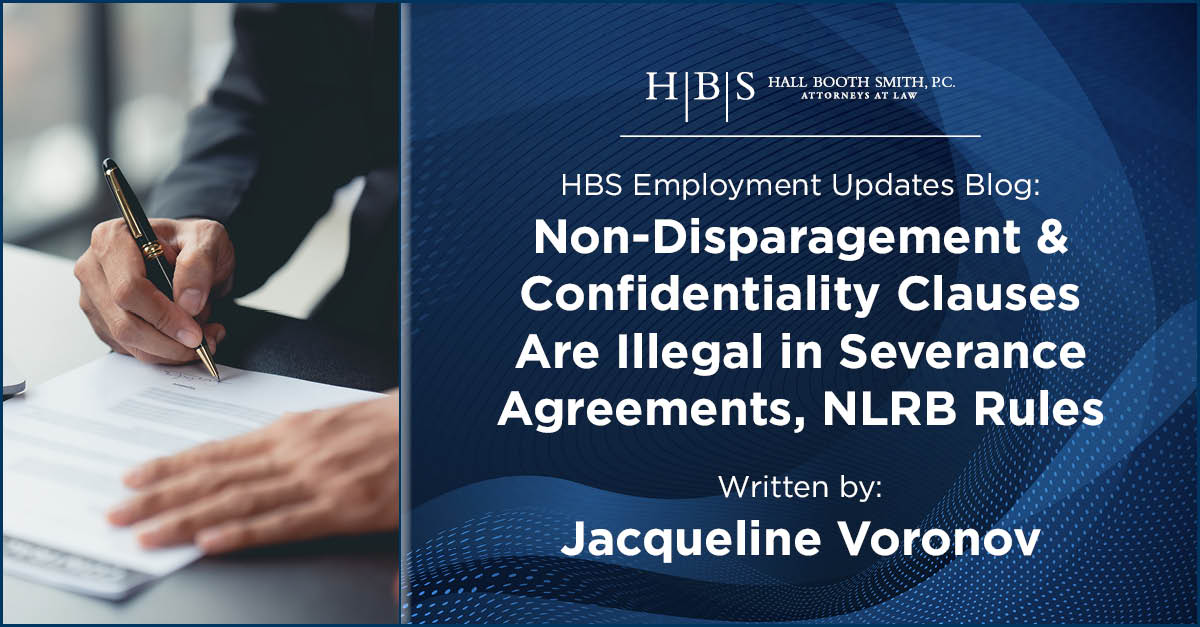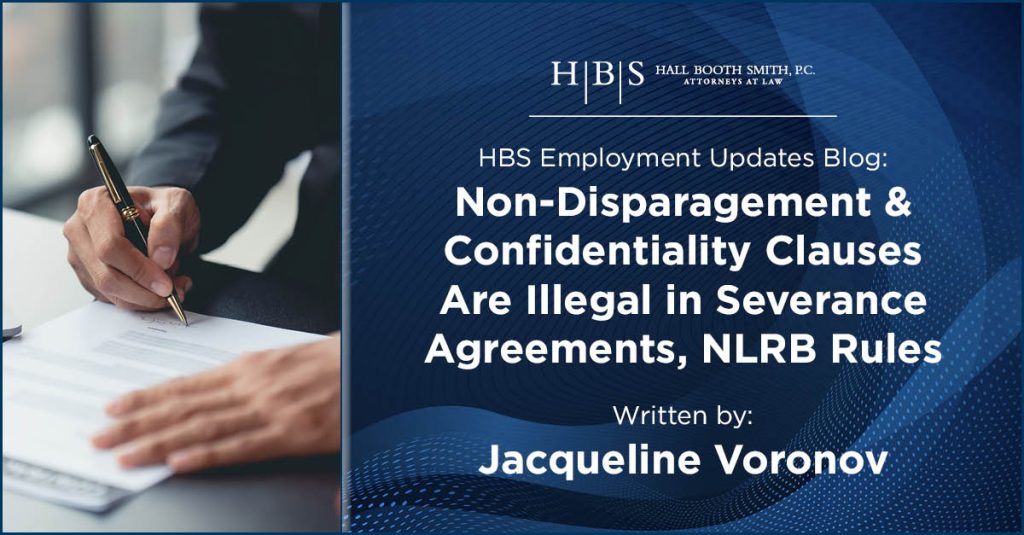
Non-Disparagement & Confidentiality Clauses Are Illegal in Severance Agreements, NLRB Rules

Companies that make former workers promise not to disparage their former employers in exchange for a severance payment are breaking federal law, the National Labor Relations Board (NLRB) ruled Tuesday. What’s more, it is also illegal to prevent employees from disclosing the terms of their severance packages, the NLRB said.
Background
Numerous companies tender severance agreements to employees when they are separated from employment under various circumstances. These agreements routinely contain releases of claims that seek to resolve most potential claims a former worker may have against an organization.
Severance agreements also typically include confidentiality provisions that preclude an employee from disclosing the financial terms of the agreement, as well as provisions that prevent the former employee from disparaging the Company to third parties.
Until recently, nothing about this was improper. Enter the NLRB…
Severance Agreement Violations
With its February 21, 2023, decision in McLaren Macomb, the NLRB’s Democratic majority overturned the Board’s Baylor University Medical Center decision and its subsequent IGT d/b/a International Game Technology ruling that a severance agreement violates the National Labor Relations Act (NLRA) if its terms tend to interfere with workers’ organizing rights.
The decision concerned a Michigan hospital that, in the midst of the COVID-19 pandemic, terminated 11 union employees and asked them — in exchange for a payout — to sign severance agreements barring them from making public comments which could disparage or harm
the company. The agreement also required them to keep the amount of severance paid confidential. All of the employees who were offered severance accepted and signed the agreement.
The Board’s General Counsel asserted that the non-disparagement and confidentiality provisions of the agreement unlawfully restrained and coerced the furloughed employees in their exercise of their rights under Section 7 of the NLRA, which guarantees all employees (both union and non-union) the right to self-organization, to form, join, or assist labor organizations, to bargain collectively through representatives of their own choosing, and to engage in other concerted activities for the purpose of collective bargaining or other mutual aid or protection.
The Board ruled that the provisions are too broad and tend to chill the exercise of employees’ rights to band together to improve the workplace.
In fact, the severance offer is itself an attempt to deter employees from exercising their statutory rights, at a time when employees may feel they must give up their rights in order to get the benefits provided in the agreement.
Having found that McLaren committed an unfair labor practice, the Board ordered, among other things, for all bargaining unit employees to be reinstated to their former jobs and, if such jobs no longer exist, reinstatement to substantially equivalent positions, together with back pay with interest.
Conclusions & Looking Forward
Many employers are unfamiliar with the NLRA and don’t give a second thought to the NLRB, much to their peril, because more than 90 percent of all non-public employees do not belong to unions. But non-union employers must still be aware of the NLRA and the NLRB.
The Board’s recent aggressive enforcement efforts among non-union employers are unprecedented and can no longer be ignored. It is clear that non-union employers’ policies and procedures are now much more likely than ever to draw the attention of the NLRB. Companies that use severance agreements should not expect these provisions to hold up if the matter gets in front of the Board, even if they are otherwise lawful under state law.
For more information, please contact Jacqueline Voronov at either jvoronov@hallboothsmith.com or 201.221.7014, or reach out to any member of Hall Booth Smith’s Labor & Employment practice.
Disclaimer
This material is provided for informational purposes only. It is not intended to constitute legal advice nor does it create a client-lawyer relationship between Hall Booth Smith, P.C. and any recipient. Recipients should consult with counsel before taking any actions based on the information contained within this material. This material may be considered attorney advertising in some jurisdictions. Prior results do not guarantee a similar outcome.


Leave a comment
You must be logged in to post a comment.